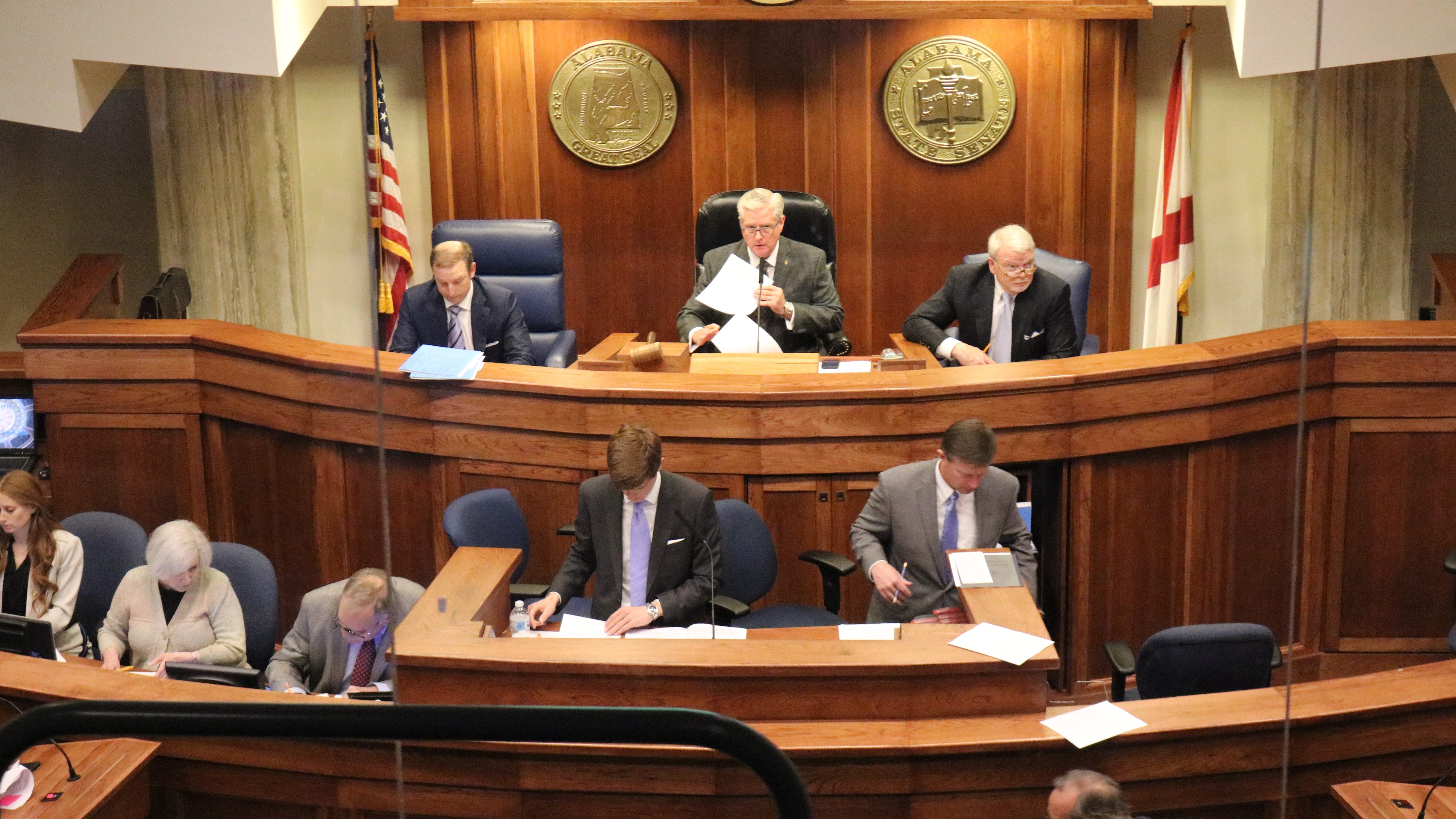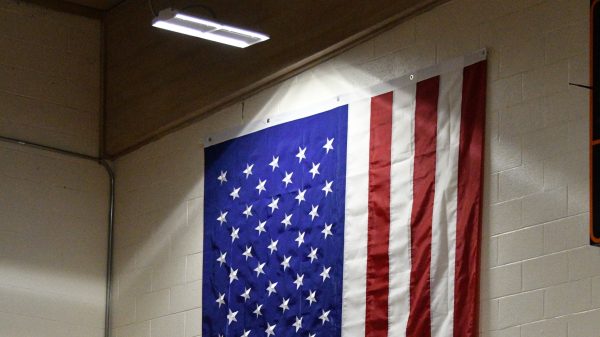The 2019 regular session of the Alabama legislature begins today Alabama Gov. Kay Ivey will give her annual state of the state address to a joint session of the Alabama Legislature tonight at 6:30 p.m. There are several key issues that will be decided by the legislature in these weeks.
Fuel tax increase – This is the Governor’s biggest priority. It is also the most controversial piece of legislation that the legislature has seen in many years. State Senator Clyde Chambliss, R-Prattville, and State Representative Bill Poole, R-Tuscaloosa, are sponsoring this legislation. Motorists would see a ten cent a gallon fuel tax increase phased in over the next three years plus the bill includes a provision to index the fuel tax to the cost of road construction so could lead to future tax increases without a vote of future legislatures. The bill would generate an additional $310 million a year in new revenue that would be split between the Alabama Department of Transportation, county road departments, municipalities, and a $10 million a year subsidy for dredging the shipping channel in Mobile Bay so that the port can accommodate the new super container ships. The Alabama Republican Party Executive Committee has urged the legislature to reject the bill. The Business Council of Alabama, the Association of County Commissions, the League of Municipalities, and various trade associations are urging legislators to pass the bill. Expect the governor to call a special session so that proponents can ram this through in as little as ten calendar days.
Common Core repeal – This issue has been a conservative priority since the Bob Riley administration first agreed to the experimental new education curriculum. Repeal efforts have gotten new vigor in recent years because the schools have done such a poor job of implementing the change. Alabama’s public schools have been ranked as low as 50th on some measures in recent testing. The Alabama Department of Education is rewriting the math course of study and is urging the legislature to hire math coaches and reading coaches to coach teachers on how to teach, but conservatives are urging the legislature to just abolish the much-maligned Alabama College and Career Ready Standards. In the past, repeal efforts could not get out of committee; but Senate President Pro Tempore Del Marsh, R-Anniston, has promised repeal advocates that repeal can get to the floor of the Senate.
Hunting hogs and deer over bait – This issue has come up repeatedly over the last four years and evokes passion by proponents and opponents alike. Feral swine is an enormous problem in Alabama. The invasive species preys on crops, ground nesting birds, and native plants. Proponents argue that hunting hogs over bait is necessary to control the species. Opponents argue that this is just a ploy to get approval of hunting deer over bait. Hunters feed the deer then harvest the animals at their convenience. Opponents argue that this is not fair chase.
Lottery – State Senator Jim McClendon, R-Springville, is bringing a lottery bill. Polls show that most Alabamians support a lottery; but the details are where the legislature gets side tracked. The general fund is where the state needs revenue; but many people prefer an education lottery like Georgia has. Gambling proponents could kill the lottery bill over demands that a gambling bill legalize bingo machines at Greenetrack, Shorter, the Birmingham Race Course, and Lowndes County. Casino proponents know that if the legislature passes a lottery bill that does not provide any legalization of electric bingo or actual casino games then it is highly unlikely they will pass a gambling bill in future legislative sessions. McClendon’s bill is not expected to include any legalization of slot machines or electronic bingo. Any lottery or gambling bill would still have to be approved by voters, whom rejected a lottery when Governor Don Siegelman (D) last brought one to voters.
Permitless Carry – gun proponents including the National Rifle Association (NRA), Gunowners of America (GOA), and Bamacarry are all in support of Senator Gerald Allen’s, R-Tuscaloosa, bill to end the requirement that Alabama citizens must have a concealed carry permit in order to carry a handgun on their person or concealed in their automobile. The Alabama Sheriff’s Association and Moms Demand Action for Gun Sense in America both strongly oppose this legislation. In the past the bill has gotten out of the Senate; but is unable to get out of committee in the Alabama House of Representatives.
Medicaid Expansion – the Alabama Hospital Association is floating a plan to expand the Medicaid program to cover non-disabled adults. They would pay for the state’s portion of the program with a per bed fee on the hospitals. The hospitals claim that expanding Medicaid is necessary to keep struggling rural hospitals from closing. Expanding Medicaid will have opposition in a conservative legislature which is already troubled by the rising costs of funding regular Medicaid.
Ethics reform – last year the legislature tasked a committee with preparing recommendations on how to reform Alabama’s 2010 ethics law. The committee is expected to recommend legislation to make economic developers exempt from the requirement that they have to register as lobbyists. Proponents argue that this is necessary to keep the state competitive in recruiting new industry. Opponents argue that the legislature is simply weakening the Alabama Ethics Law. Marsh has expressed concerns that there were unintended consequences with the 2010 ethics law that have prevented legislators from serving while operating their businesses.
Arming teachers – The only way to stop a bad guy with a gun is a good guy with a gun. That phrase will be used to justify a number of suggestions to increase the numbers of armed personnel in Alabama schools. An effort is underway to increase the number of school resource officers in schools. There will also be a bill introduced to arm some trained school teachers and administrators. Armed teachers is supported by pro-Second Amendment groups, but is opposed by Moms Demand Action. Legal liability concerns are a major issue as well.
Prisons – Federal Judge Myron Thompson has ruled that the state does not provide adequate mental health care for its inmates. The legislature is going to have to increase funding for mental health workers to comply with the federal court order. It is also going to have to come up with funding to hire hundreds more corrections officers for the chronically overcrowded and understaffed state corrections facilities. Gov. Ivey is expected to authorize the construction of three new large capacity men’s prisons. She could do that through executive action and go around the legislature. Doing a bond issue with the legislature is likely to be considered, but past efforts to get similar bills through the legislature all failed.
Budgets – the economy is doing strong so revenues are up and neither the general fund budget or education budget are expected to be difficult. The 2020 fiscal year education budget is anticipated to be the largest in state history. There will still be efforts to un-earmark more money. Any effort to actually combine all state funding into one pot would have to be approved by the voters and there seems to be little support for that in the legislature.






















































